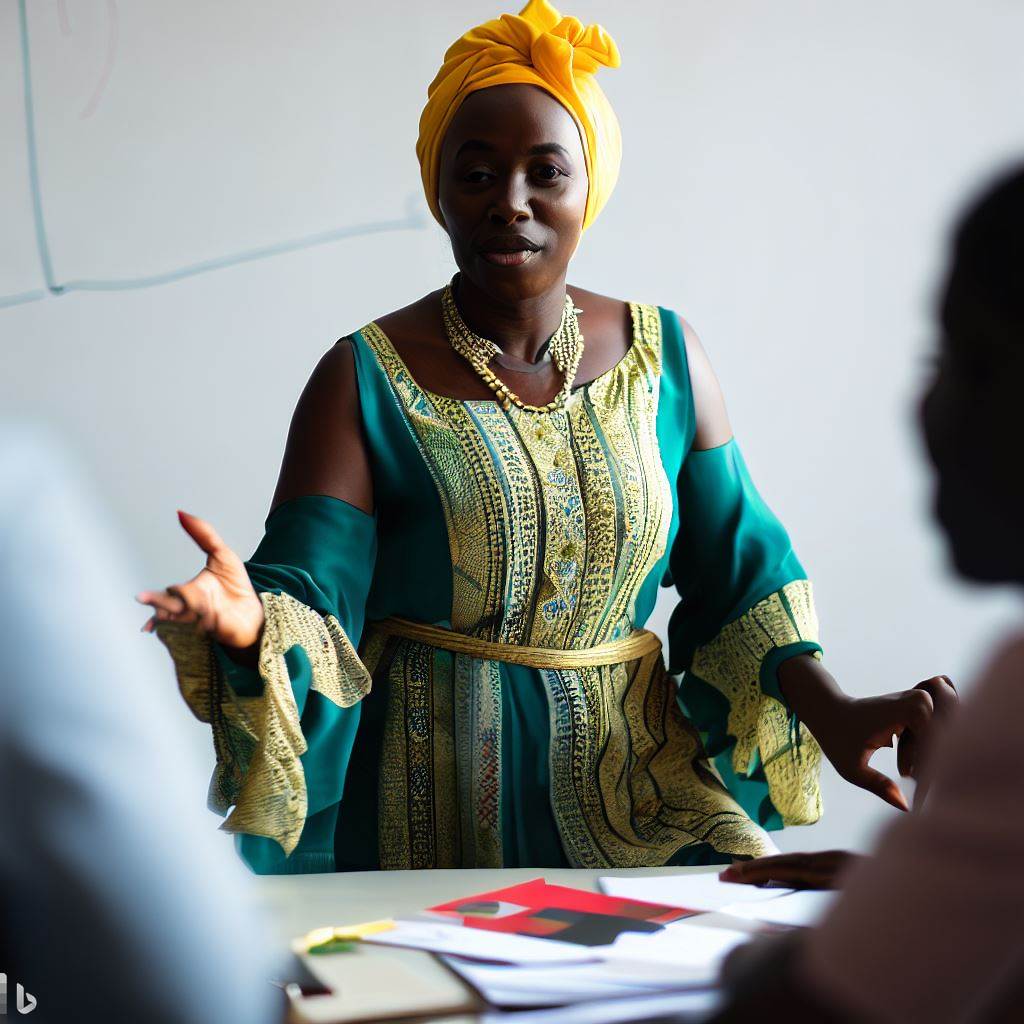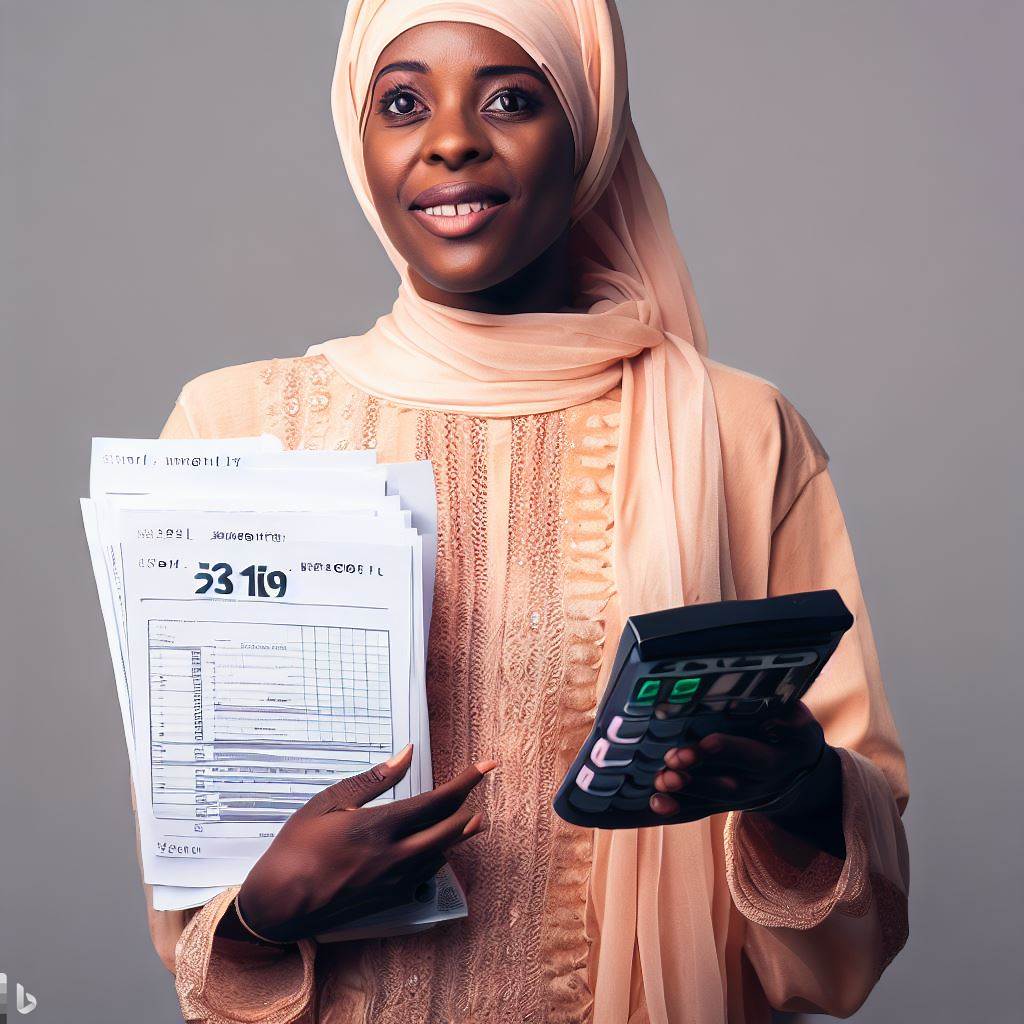Introduction
A. Understanding the Significance
Currency literacy is vital for Nigerians to navigate the global economy confidently.
B. Purpose of This Article
This article aims to enhance Nigerians’ grasp of currency dynamics, especially Naira to Dollars.
C. Key Discussion Points
- Importance of Currency Literacy
- Factors Influencing Exchange Rates
- Practical Tips for Currency Exchange
- Impact of Currency Fluctuations on Daily Life.
Understanding the Nigerian Currency (Naira)
A. Brief history and background of the Nigerian currency
The Nigerian currency, known as the Naira, has a rich history that dates back to its introduction in 1973.
It replaced the Nigerian Pound and became the official currency of Nigeria.
B. Different denominations and their values
The Naira is subdivided into smaller units called Kobo.
Currently, there are six different denominations of Naira notes in circulation, namely ₦1000, ₦500, ₦200, ₦100, ₦50, and ₦20.
There are also coins of smaller values like ₦1, ₦2, ₦5, ₦10, ₦20, and ₦50 Kobo.
C. Current exchange rate with the US Dollar
The exchange rate between the Naira and the US Dollar fluctuates regularly due to various factors.
1. Factors that influence the exchange rate
Several factors influence the exchange rate, including inflation, interest rates, political stability, economic performance, and international trade.
2. Importance of staying updated on the exchange rate
It is vital for Nigerians to stay updated on the exchange rate as it affects their purchasing power and the cost of imported goods.
Essentially, understanding the Nigerian currency, the Naira, is crucial for every Nigerian.
By knowing the history, denominations, and current exchange rate, individuals can make informed financial decisions and adapt to economic fluctuations.
Read: Personal Finance Skills Every Nigerian Should Master
Basic Concepts of Currency Exchange
A. Definition and Explanation of Currency Exchange
- Currency exchange refers to the process of converting one currency into another.
- This is done to facilitate transactions between countries with different currencies.
- Currency exchange allows individuals and businesses to convert their money for international travel or trade.
- It can be done through banks, foreign exchange brokers, or currency exchange kiosks.
- The exchange rate determines the value at which one currency can be exchanged for another.
B. Differences between Buying and Selling Currency
- Buying currency involves acquiring a foreign currency in exchange for your local currency.
- This is commonly done when individuals or businesses are traveling to another country.
- Selling currency, on the other hand, is the process of exchanging a foreign currency for your local currency.
- This is often done when you return from a foreign trip or have leftover foreign currency from a transaction.
- When buying currency, you seek a favorable exchange rate to get more of the foreign currency.
- When selling currency, you look for a favorable exchange rate to get more of your local currency.
C. Introduction to Currency Pairs and Exchange Rates
- Currency pairs are the two currencies involved in a foreign exchange transaction.
- They are represented by a three-letter code, such as USD (United States Dollar) or EUR (Euro).
- Currency pairs represent how much of one currency is needed to purchase another currency.
- The exchange rate is the value at which one currency can be exchanged for another.
- Exchange rates fluctuate constantly due to various factors, including economic conditions and market forces.
- Exchange rates are quoted as a ratio, such as 1 USD/NGN (United States Dollar/Nigerian Naira).
- The first currency is the base currency, and the second currency is the quote currency.
Why Currency Exchange Literacy Matters
- Understanding basic concepts of currency exchange is crucial for individuals and businesses engaging in international transactions.
- Without currency literacy, people may end up paying more for their foreign currency or getting less value when converting back.
- Currency exchange rates can significantly impact the cost of goods, services, and investments across borders.
- Being knowledgeable about currency exchange can help individuals make informed financial decisions.
- It can also prevent potential scams or fraud in foreign currency transactions.
- Currency exchange literacy promotes economic growth, trade, and tourism by facilitating seamless transactions between countries.
In general, currency exchange is a fundamental aspect of global economies and international transactions.
By familiarizing ourselves with the definition, buying and selling currency differences, and currency pairs and exchange rates, we can make informed decisions and maximize the value of our money.
Your Personalized Financial Plan
Get expert financial advice tailored exclusively to your goals. Receive a custom roadmap in just 1-3 business days.
Get StartedCurrency exchange literacy is essential for individuals and businesses to navigate the global landscape efficiently and effectively.
Read: Financial Literacy: Planning for the Nigerian Entrepreneur
Importance of Currency Literacy for Nigerians
A. Economic benefits of being currency literate
- Increased awareness of exchange rates can lead to better financial planning and budgeting.
- Currency literacy allows Nigerians to understand the impact of inflation on their purchasing power.
- Understanding different currencies enables individuals to make informed decisions when investing or saving money.
- Being currency literate can help individuals identify opportunities for international business and investment.
- Knowledge of exchange rates allows Nigerians to compare prices of goods and services in different countries.
B. Impact of fluctuating exchange rates on everyday life
- Fluctuating exchange rates can affect the cost of imported goods, leading to changes in prices.
- Currency volatility can impact the value of savings and investments in foreign currencies.
- Changes in exchange rates can influence the cost of international travel and tourism for Nigerians.
- Individuals with foreign currency loans or debts may experience increased repayment costs due to exchange rate fluctuations.
- Understanding exchange rates can help individuals make informed decisions when exchanging currencies for travel or remittances.
C. Empowerment through understanding international trade and finance
- Currency literacy enables Nigerians to participate more effectively in global trade and commerce.
- Understanding international finance allows individuals to navigate financial markets and investment opportunities.
- Knowledge of exchange rates facilitates foreign direct investment and encourages economic growth.
- Currency literacy empowers individuals to protect themselves from fraudulent foreign exchange practices.
- Understanding international trade and finance enables Nigerians to contribute to economic policy discussions and decision-making.
Basically, currency literacy is crucial for Nigerians to fully participate in a globalized economy.
It provides economic benefits by enhancing financial planning, investment decisions, and budgeting.
Fluctuating exchange rates directly impact everyday life, affecting the cost of goods, savings, and travel.
Moreover, currency literacy empowers individuals by enabling them to engage in international trade and finance, contributing to economic growth and safeguarding against fraudulent practices.
Therefore, it is essential for Nigerians to invest in developing currency literacy skills to navigate the complexities of the global financial landscape.
Read: Understanding Insurance: Financial Literacy in Nigeria

Tips for Improving Currency Literacy
A. Utilizing online resources and financial news websites
- Bookmark reliable financial news websites to stay updated on exchange rates.
- Read articles and analysis on currency markets to understand factors affecting their value.
- Follow reputable financial bloggers and experts who share currency insights and predictions.
- Use currency converters and online calculators to understand the value of different currencies.
- Participate in online forums and communities to discuss currency trends and gain different perspectives.
B. Engaging in currency exchange simulations and games
- Download currency trading simulation apps to practice buying and selling currencies in a safe environment.
- Participate in virtual currency trading competitions to test your skills and learn from others.
- Join online trading communities that offer virtual trading platforms for beginners.
- Set challenges for yourself to achieve specific investment goals while learning about currency fluctuations.
- Analyze your performance and learn from your mistakes to improve your understanding of currency trends.
C. Seeking guidance from professionals or financial institutions
- Contact local financial institutions or banks to attend seminars or workshops on currency literacy.
- Consult with certified financial advisors who specialize in currency markets for personalized guidance.
- Set up meetings with professionals to discuss your financial goals and get advice on currency investments.
- Consider enrolling in courses or programs offered by reputable institutions to enhance your currency knowledge.
- Join online communities or forums where professionals offer guidance and answer currency-related questions.
Improving currency literacy is crucial in today’s globalized economy.
By utilizing online resources and financial news websites, individuals can stay updated on exchange rates, read articles and analysis to understand currency markets, follow experts for insights, and use currency converters and calculators.
Engaging in currency exchange simulations and games allows individuals to practice trading in a safe environment, participate in virtual competitions, join trading communities, set challenges, analyze performance, and learn from mistakes.
Seeking guidance from professionals or financial institutions through seminars, workshops, meetings, certified advisors, and courses is also beneficial.
With these tips, Nigerians can enhance their currency literacy and make informed decisions regarding their financial investments.
Read: Financial Literacy: Protecting Against Fraud in Nigeria
Unlock a Debt-Free Future with Our Unique Strategies
Imagine a life unburdened by debt—a reality we help you visualize and achieve. We offer personalized strategies tailored to your unique situation, guiding you step-by-step toward financial freedom.
Start TodayCommon Challenges and Misconceptions Regarding Currency Exchange
A. Addressing misconceptions about currency appreciation and depreciation
- Many Nigerians believe that currency appreciation is always beneficial, but it can harm the economy.
- Contrary to popular belief, currency depreciation can have positive effects on exports and economic growth.
- Understanding the complex relationship between currency value and economic conditions is essential.
- Misconceptions about currency appreciation and depreciation can lead to poor financial decisions.
B. Common scams and fraudulent activities related to currency exchange
- Nigerians need to be cautious of fake currency exchange operators who offer unrealistically high rates.
- Scammers often target unsuspecting individuals through online platforms, promising quick and easy profits.
- Beware of pyramid schemes that claim to offer lucrative returns through currency exchange investments.
- Educating oneself about the legitimate currency exchange channels can help identify potential scams.
C.Risks of illegal and unregulated exchange platforms
- Engaging in currency exchange transactions through illegal and unregulated platforms is highly risky.
- Unregulated exchange platforms may lack transparency, putting users’ funds at risk of loss or theft.
- Nigerians should only use authorized and licensed currency exchange platforms to ensure the safety of their transactions.
- Illegal exchange platforms may also facilitate money laundering and other criminal activities.
It is crucial for Nigerians to have currency literacy and be aware of the challenges and misconceptions surrounding currency exchange.
By addressing misconceptions about currency appreciation and depreciation, individuals can make informed financial decisions.
Understanding the risks associated with scams and fraudulent activities related to currency exchange can help protect individuals from falling victim to these schemes.
Additionally, highlighting the dangers of using illegal and unregulated exchange platforms reminds Nigerians to prioritize safety and only engage in transactions through authorized channels.
Currency exchange is a vital aspect of the Nigerian economy, and being well-informed is key to navigate this financial landscape successfully.
Conclusion
Currency literacy is crucial for Nigerians as it empowers them to understand the value of their money and make informed financial decisions.
Continuous learning is key to enhancing currency literacy.
Nigerians should actively seek opportunities to improve their knowledge about currencies and exchange rates.
In summary, being currency literate is not only advantageous, but also necessary in today’s globalized world.
Nigerians must take action by educating themselves about different currencies, exchange rates, and the impact of currency fluctuations on their financial well-being.
By staying informed and continuously learning, individuals can protect themselves from financial risks and seize opportunities for economic growth.
Let us all commit to becoming currency literate and empower ourselves with the knowledge needed to make wise financial decisions.
Remember, currency literacy is a lifelong journey that requires effort and dedication.
Start today and take small steps towards mastering this essential skill.
Unlock Untapped Nigerian Wealth with Our Expert Advice
Imagine accessing investment opportunities others overlook—stocks, bonds, real estate, small businesses tailored to you. We offer personalized advice you won't find elsewhere, guiding you to financial success.
Unlock WealthTogether, we can build a financially literate Nigeria.




